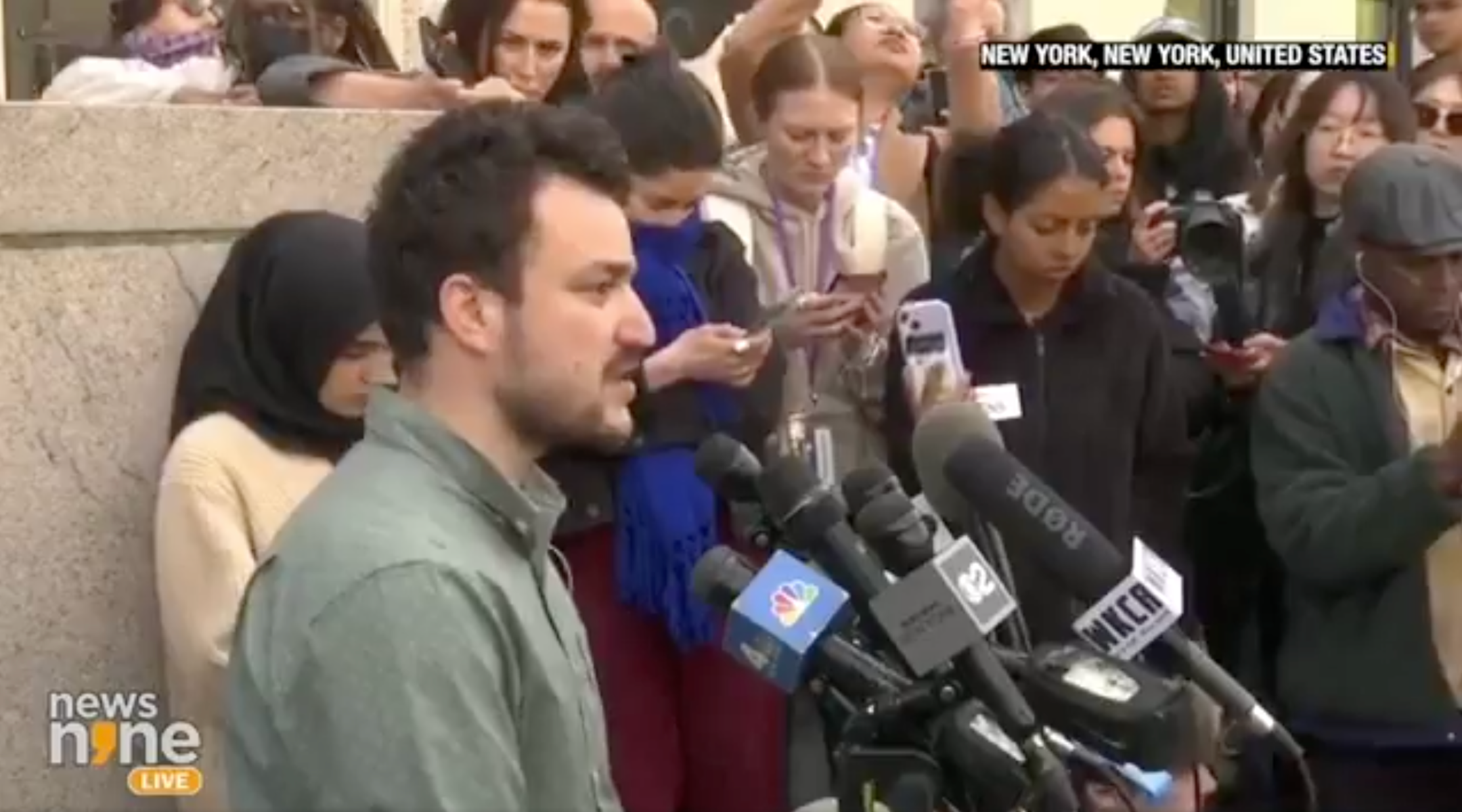Mahmoud Khalil, the Palestinian protest leader arrested by ICE at Columbia University, can be deported, a federal immigration judge ruled Friday.
The ruling by Jamee Comans, a Louisiana immigration judge, is the most significant development in Khalil’s case since he was arrested in his apartment building almost exactly a month ago and accused by the Trump administration of being “aligned to Hamas.”
But it does not mean that Khalil will immediately be deported. His lawyers were given until April 23 to request a stay of his deportation, which they plan to seek, the Associated Press reported. A New Jersey federal judge has also temporarily halted his deportation.
Khalil’s arrest split Jewish groups. Some cheered the impending deportation of an activist who, they said, led a movement that harassed Jewish students and spread antisemitic messaging. Others expressed concern about infringements on due process and civil liberties. His protest galvanized protest across the country.
On Friday, Comans did not question the government’s argument that the administration may deport Khalil, who is a green card holder, on the grounds that he undermines U.S. policy goals, according to NPR.
The government had “established by clear and convincing evidence that he is removable,” Comans said, according to the Associated Press.
The decision comes after the federal government filed a memo signed by Secretary of State Marco Rubio in which he stated that although Khalil’s behavior may have been lawful, his presence and activities in the country undermine “U.S. policy to combat anti-Semitism around the world and in the United States, in addition to efforts to protect Jewish students from harassment and violence in the United States.”
Khalil’s detainment was the first in a succession of arrests of international students connected with pro-Palestinian activism. Although the Trump administration has framed the effort as part of their initiative to fight antisemitism on campuses, some Jewish organizations have expressed concerns about whether the crackdown could damage free speech.
Following the ruling, Khalil said in court, “I would like to quote what you said last time that there’s nothing that’s more important to this court than due process rights and fundamental fairness. Clearly what we witnessed today, neither of these principles were present today or in this whole process.”
If he is deported, Khalil would be sent to either Syria, where he was born, or to Algeria, where he has citizenship, according to NPR.
“Today, we saw our worst fears play out: Mahmoud was subject to a charade of due process, a flagrant violation of his right to a fair hearing, and a weaponization of immigration law to suppress dissent,” said Khalil’s attorney, Marc van der Hout, in a statement to ABC News. “This is not over, and our fight continues.”
JTA has documented Jewish history in real-time for over a century. Keep our journalism strong by joining us in supporting independent, award-winning reporting.





